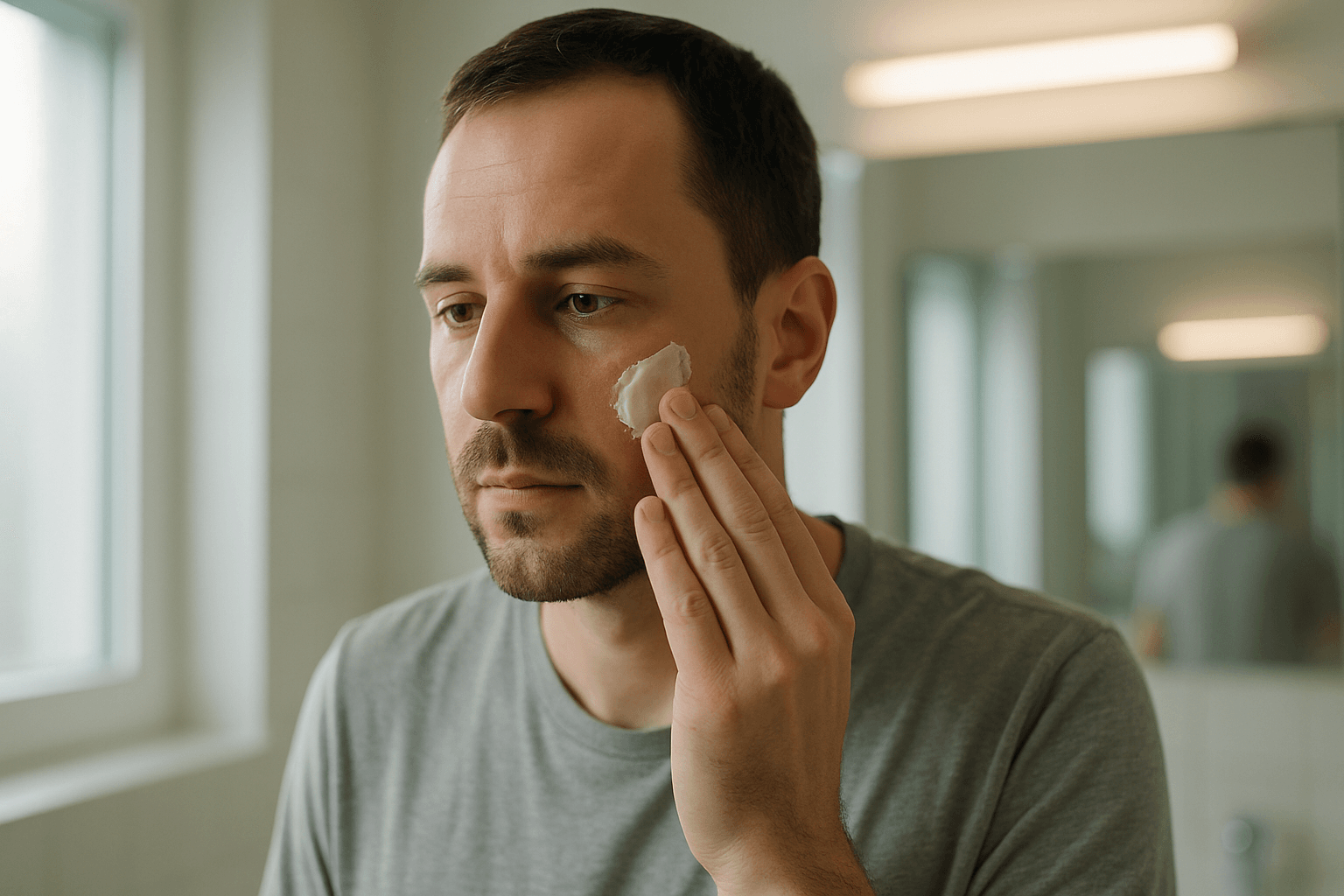Imagine your skin as a formidable fortress, a resilient wall guarding your internal world from external threats. This architectural marvel, known as the skin barrier or stratum corneum, is comprised of skin cells (corneocytes) bound together by a lipid matrix, creating an essential shield against pollutants, irritants, and pathogens, while simultaneously locking in precious moisture. Yet, in our quest for perfect skin, we often inadvertently compromise this very defense system, leaving it vulnerable, reactive, and far from its radiant best.
Recognizing a damaged skin barrier is the first step toward recovery. Signs often include persistent dryness and tightness, redness, flakiness, increased sensitivity to products, itching, and even unexplained breakouts. Causes can range from environmental factors like extreme weather and sun exposure to lifestyle choices such as over-exfoliation, harsh skincare products, and psychological stress. The good news? Your skin barrier is capable of self-repair, and with expert guidance, you can accelerate its healing and fortify its defenses.
Here are seven expert-backed tips to repair and strengthen your damaged skin barrier:
1. Simplify Your Skincare Routine and Pause Actives
When your skin barrier is compromised, less is often more. Overloading your skin with numerous products, especially those containing potent active ingredients, can exacerbate irritation and hinder the healing process. Take a temporary break from harsh exfoliants (like AHAs, BHAs, and abrasive scrubs), retinoids, and strong anti-acne treatments. These ingredients, while beneficial in a healthy skin state, can strip natural oils and disrupt the delicate balance of a weakened barrier. Instead, focus on a minimalist routine centered around gentle cleansing and intensive moisturizing for a few days to a week, allowing your skin to reset and recover.
2. Embrace Gentle, Lukewarm Cleansing
The way you cleanse your skin profoundly impacts barrier health. Harsh cleansers, particularly those with alkaline pH or containing sulfates, can strip away the skin’s natural protective oils and acid mantle, further compromising the barrier. Opt for a mild, hydrating, fragrance-free cleanser that effectively removes impurities without leaving your skin feeling tight or dry. Additionally, always use lukewarm water instead of hot water, as excessively hot water can melt away healthy natural oils and irritate the skin. Pat your skin gently dry with a soft towel rather than rubbing.
3. Hydrate and Moisturize Intensely with Barrier-Repairing Formulas
Consistent and ample hydration is paramount for a damaged skin barrier. Moisturizers act as a protective layer, helping to reduce trans-epidermal water loss (TEWL) and replenish essential lipids. Look for creams and lotions specifically formulated for barrier repair, which are typically richer and contain a blend of humectants, emollients, and occlusives. Apply your moisturizer to slightly damp skin to maximize absorption and lock in moisture. For severely damaged areas, an occlusive emollient like petrolatum or shea butter can create a “band-aid” effect, sealing the skin and promoting healing.
4. Incorporate Key Barrier-Supporting Ingredients
Certain ingredients are superstars in strengthening and restoring the skin barrier. Prioritize products that feature these components:
- Ceramides: These waxy lipids are crucial, making up 30-40% of the outermost layer of the skin and acting as the “mortar” between skin cells. They are vital for preventing dehydration and irritation.
- Hyaluronic Acid: A powerful humectant, hyaluronic acid can draw and hold up to 1,000 times its weight in water, intensely hydrating the skin and plumping it from within.
- Niacinamide (Vitamin B3): A multitasking ingredient, niacinamide helps calm inflammation, improve ceramide production, regulate oil, and enhance overall barrier function.
- Fatty Acids and Cholesterol: Along with ceramides, these lipids are essential for maintaining the skin’s lipid balance and structural integrity.
- Squalane: A lightweight oil that mimics the skin’s natural oils, squalane absorbs easily to nourish and hydrate without greasiness.
- Glycerin: Another excellent humectant that helps the skin stay hydrated, flexible, and resilient.
- Panthenol (Pro-Vitamin B5): Known for its calming and healing properties, panthenol soothes inflammation and promotes repair.
- Colloidal Oatmeal: An anti-inflammatory powerhouse that aids healing and calms irritation, particularly beneficial for sensitive or eczema-prone skin.
5. Prioritize Daily Sun Protection
Sun exposure is a significant aggressor for the skin barrier, leading to damage, inflammation, and slowed recovery. Daily use of a broad-spectrum sunscreen with an SPF of 30 or greater is non-negotiable, even on cloudy days. Look for formulas rich in antioxidants to further protect against environmental damage. Physical blockers like zinc oxide and titanium dioxide are often well-tolerated by sensitive, compromised skin. Additionally, seek shade during peak sun hours (10 a.m. to 4 p.m.) and wear protective clothing.
6. Avoid Known Irritants and Harsh Chemicals
While actively repairing your barrier, be vigilant about avoiding ingredients that can worsen sensitivity and irritation. Common culprits include fragrances (both synthetic and natural essential oils), alcohol (especially drying forms like ethanol), and sulfates. These can strip the skin and trigger negative reactions in a compromised barrier. Always check ingredient lists and opt for “fragrance-free” and “alcohol-free” products. If you use active ingredients, reintroduce them slowly and sparingly once your barrier has visibly improved, starting with lower concentrations and less frequent application.
7. Support Your Skin Barrier with a Healthy Lifestyle
Skin health is intrinsically linked to overall well-being. Several lifestyle factors can impact your skin barrier:
- Manage Stress: Psychological distress can affect skin barrier function. Incorporate stress-reduction techniques into your daily routine.
- Stay Hydrated Internally: Drinking plenty of water supports overall body hydration, which in turn benefits skin moisture.
- Nutrient-Rich Diet: A balanced diet rich in antioxidants and healthy fats can provide the internal building blocks for a strong skin barrier.
- Adequate Sleep: Sufficient rest allows your body, including your skin, to repair and regenerate.
- Avoid Smoking: Smoking is detrimental to skin health and can impair barrier function.
By following these expert tips, you can effectively repair your damaged skin barrier, restoring its strength, resilience, and radiant health. Patience and consistency are key, as healing takes time, but the investment in your skin’s first line of defense will yield long-lasting benefits.

